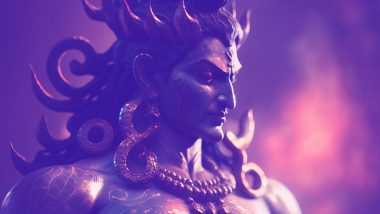Ashwatthama (also spelt as Ashwathama), the son of Dronacharya, is one of the most enigmatic and powerful characters in the Mahabharata. Known for his immense strength, indomitable spirit, and tragic destiny, Ashwatthama's story is deeply woven into the fabric of the great epic. He is known for his role in the war, including his participation in the nighttime massacre of the Pandava camp, where he slew many of their warriors, including their sons. Revered as an immortal warrior, his tale is one of honour, revenge, and the complex interplay between dharma (righteousness) and adharma (unrighteousness). In this article, we’ll learn a detail about Ashwatthama, from his early life to his significance in Hindu mythology.
Ashwatthama’s Birth and Early Life
Ashwatthama was born to Dronacharya, the legendary guru of the Pandavas, Kauravas, and Kripi. From a young age, he exhibited extraordinary abilities and was destined for greatness. His birth was accompanied by a divine omen—a powerful cry resembling that of a horse—earning him the name ‘Ashwatthama,’ meaning the one whose cry is like that of a horse.
Blessed with a gem (Mani) on his forehead, Ashwatthama possessed immense power, including protection from hunger, thirst, and fatigue. This gem also made him invincible, ensuring his survival through the toughest of battles.
Ashwatthama’s Role in Mahabharata
Ashwatthama's life was inextricably linked to the Kurukshetra war, the epic battle that forms the crux of the Mahabharata. As a staunch ally of the Kauravas, he fought valiantly alongside them against the Pandavas. He also became close friends with Duryodhana during the war. However, seeing his friend lying to death, Ashwatthama's grief and rage knew no bounds, and he vowed to avenge his friend’s death.
The Night of Revenge
Driven by a thirst for revenge, Ashwatthama committed one of the most heinous acts in the Mahabharata. On the night after the war ended, he infiltrated the Pandava camp while they were asleep and unleashed the Narayanastra, a celestial weapon, killing most of the Pandava army. In a final act of vengeance, he killed the five sons of the Pandavas, mistaking them for the Pandavas themselves.
This act of cruelty led to a curse from Krishna, who condemned Ashwatthama to roam the earth for eternity, suffering from his unhealed wounds. His gem was also taken away, stripping him of his powers and leaving him to endure the consequences of his actions.
Ashwatthama's Immortality
Ashwatthama's immortality is a subject of fascination and mystery. Unlike other warriors in the Mahabharata, his immortality is a curse rather than a blessing. Condemned to eternal suffering, Ashwatthama is believed to wander the earth, seeking redemption for his sins. Various legends and folklore suggest that he still exists today, his wounds festering, serving as a reminder of the consequences of unchecked rage and revenge.
Legacy and Significance
Ashwatthama's story serves as a powerful lesson in the Mahabharata, highlighting the fine line between dharma and adharma. His tragic fate underscores the importance of self-restraint, the consequences of anger, and the devastating effects of revenge. Despite his downfall, Ashwatthama remains a symbol of the complexities of human nature, embodying both great power and profound tragedy.
Ashwatthama is often invoked as a cautionary tale, reminding us of the eternal consequences of our actions. His tale continues to captivate the imagination of those who delve into the rich tapestry of the Mahabharata, offering valuable insights into the moral and ethical dilemmas faced by the characters in the epic.
(The above story first appeared on LatestLY on Aug 26, 2024 03:39 PM IST. For more news and updates on politics, world, sports, entertainment and lifestyle, log on to our website latestly.com).













 Quickly
Quickly





















